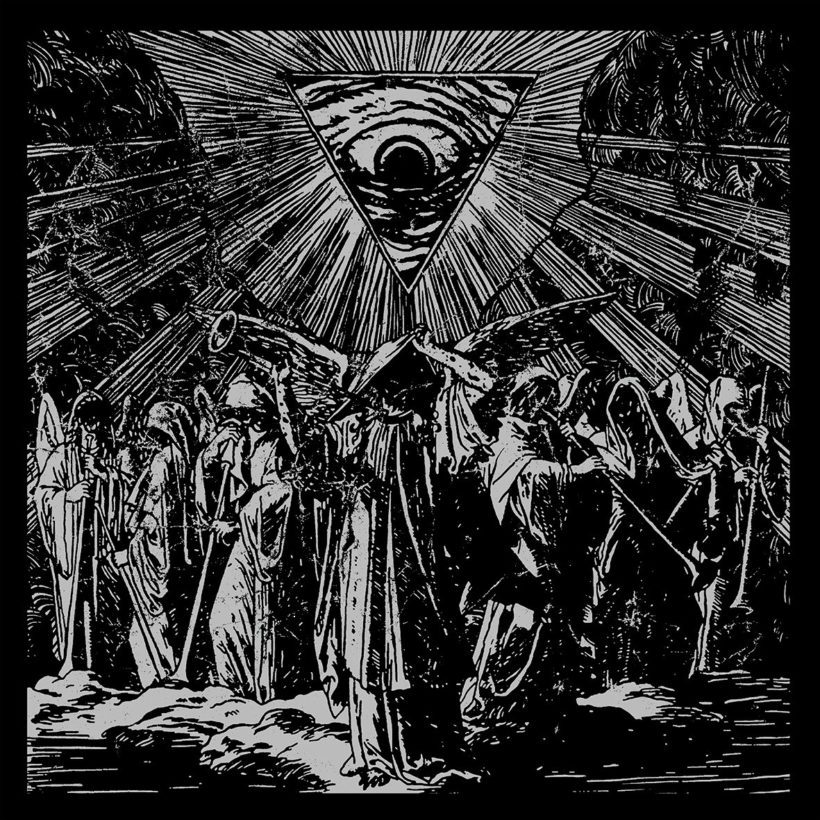
Blood, fire, death—the whole nine yards
Blood. Food for life. Feast of the gods. The act of war. The death of life. The birth of life. Throughout the ages and across cultures, blood has had many signifiers and weights of importance. Ancient Egyptians performed execration rituals, often resulting in the destruction of an animal; Cree Indians performed blood sacrifices while Sun Dancing; the Moche civilization of what is now Peru was known for its killings. Fast forward to the present, and bloodletting (or outright murder) is no longer part of our ceremonies for god(s), prosperity and protection. Certainly, Decibel hasn’t morphed into an anthropological publication between issues, so what does blood have to do with our antagonists at hand, Swedish black metal provocateurs Watain? Everything.
As Watain—featuring front/wildman Erik Danielsson, guitarist Pelle Forsberg and drummer Håkan Jonsson—ventured deep into the light-devouring caverns of Satanism (not the Halloween kind either), they discovered blood. The power of it. The taste of it. And the stench of it as it rotted in ampules (while on tour), on their clothes (as part of the stage ritual) and on their flesh (to absorb and project its power). They, like humans before and after the coming of Jesus Christ, bathed in blood. Watain are modern-day Aztecs, the answer to Sumerian blood rituals and the literal successor—at least as far as blood goes—to the Vikings, whose blót sacrifices to appease gods like Odin are not only well-known, but unquestionably savage.
It’s on Casus Luciferi—Watain’s second full-length—where the version of the band you see today originated. The stage setups, the altar, the fire, the bones and, of course, the blood can all be traced back here. Not that Watain’s entire existence is placed on these very things, but they play an important role in the overall aesthetic. Casus Luciferi’s gravitas stems from two consociate points: music and lyrics. Tracks like “Devil’s Blood,” “From the Pulpits of Abomination,” “The Golden Horns of Darash” and “Black Salvation” are pivotal in Watain’s progression from 2000 debut Rabid Death’s Curse, where death metal was a factor across the soundscape. On Casus Luciferi, the Swedes’ penchant for pulling attributes from their influences—Dissection, Mayhem, Venom and, of course, Bathory—blurred as the vision of total fucking darkness came into full view. Lyrically, Danielsson’s fire blazed higher and hotter, in reference to and for the Lucifer. They started to take on a serious tone, the type of transition that most lyricists citing anti-Abrahamic things don’t partake in. Danielsson’s descent was sincere, his words branded with flame and his projections verifiably intense. The threat was indeed real.
With that, Decibel is proud—and somewhat cautious—to welcome Watain and Casus Luciferi into the Hall. We’re cool with the severity of Danielsson and the rest of the group’s beliefs, but the goblets of rotting blood, the carrion-fragranced clothes, the constant threat of fire and the skinned goat heads are things that don’t age (or smell) well in the Hall’s ever-growing room of disparate yet awesome honorees. Anyway, horns up!
Need more Watain? To read the entire seven-page story, featuring interviews with all members on Casus Luciferi, purchase the print issue from our store, or digitally via our app for iPhone/iPad or Android.




